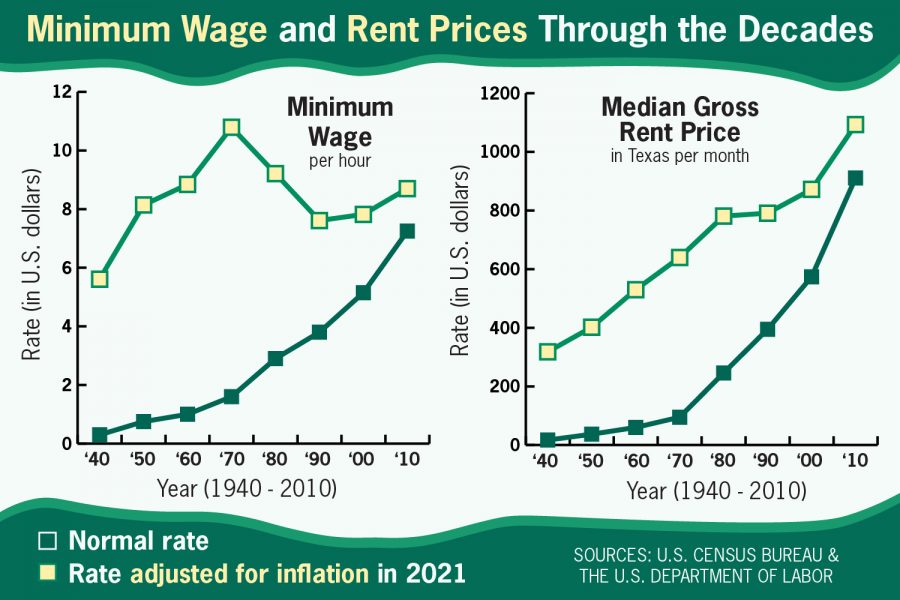Minimum wage increase denied in U.S. Congress, alternate bill leaves possibility open
March 26, 2021
Efforts to increase the federal minimum wage to $15 are being postponed after the minimum wage hike failed to be included in the COVID-19 relief package President Joe Biden signed on March 11.
According to the U.S. Department of Labor, the minimum wage was last increased to $7.25 from $6.55 in 2009, when the average rent price in Texas was $910. In 2021, the average rent price in Texas has jumped to $1,045 per month, but the minimum wage has remained the same.
In the version of the American Rescue Plan Act that passed through the U.S. House of Representatives in February, a provision was included to gradually increase the minimum wage to $15 by 2025. Once the plan was brought to the Senate, the increase was removed.
Senate parliamentarian Elizabeth MacDonough said including the provision in the reconciliation bill between the House and Senate versions of the bill would speed up the process, but violates budgetary rules enacted to limit what can be included in emergency packages, according to The New York Times.
Republican senators Mitt Romney and Tom Cotton countered the original provision with a $10 target minimum wage bill to “raise the floor for workers without costing jobs,” according to an article by The Guardian.
An alternative method to increase the minimum wage is the Raise the Wage Act of 2021, which was introduced on Jan. 26 in the Senate and referred to the Committee on Health, Education, Labor and Pensions. The bill has yet to be voted on.
James Galbraith, professor in the LBJ School of Public Affairs, said studies done in the late 1990s showed that increasing the minimum wage in fast food restaurants decreased employee turnover and increased total employment.
“It does appear that a higher minimum generates more stable employment, and the result of that is higher levels of total employment,” Galbraith said. “Increasing the minimum wage may allow for increased job opportunities as people will not have to hold as many jobs to make a liveable wage.”
Chemistry graduate student Danny Cotton said graduate students at UT typically have to work minimum wage jobs to keep up with the costs of living.
“I worked in one of the better-paid departments at UT, and I still need … to have at least three roommates,” Cotton said. “I also tend to work additional jobs on the side.”
Ken-Hou Lin, associate professor of sociology, said in an email that many empirical studies indicate increasing the minimum wage does not have an adverse effect. Lin said increasing the minimum wage would reduce financial burden on college students and limit student debt.
“It’s not clear whether more or (fewer) people will go to college due to a difference in minimum wage,” Lin said.
Galbraith said the current minimum wage allows for predatory labor exploitation, particularly within marginalized communities. He said an increase in minimum wage will reduce the number of people who rely on food stamps and other welfare benefits.
“If the minimum wage is higher and the whole wage structure is higher, then the households that those young people come from are likely to have higher incomes, which means that they may have less pressure on them to be looking for work,” Galbraith said.
Editor’s Note: This article first appeared in the March 26 issue of The Daily Texan.











